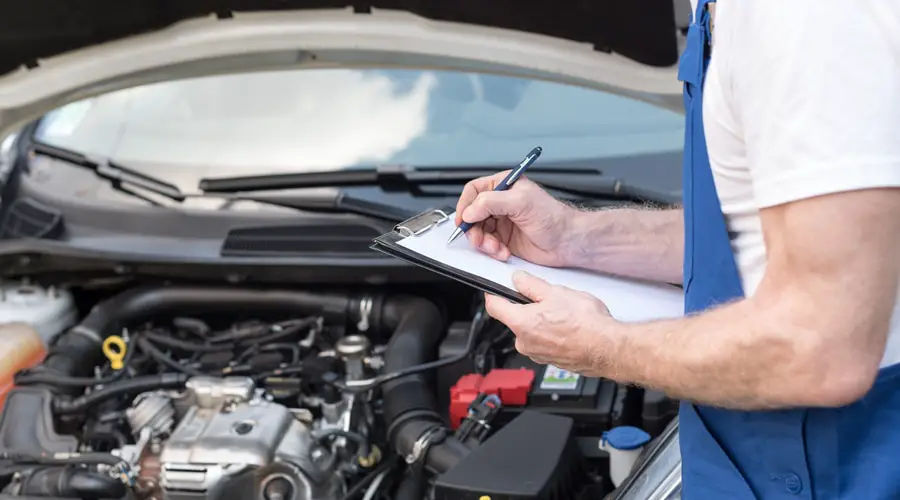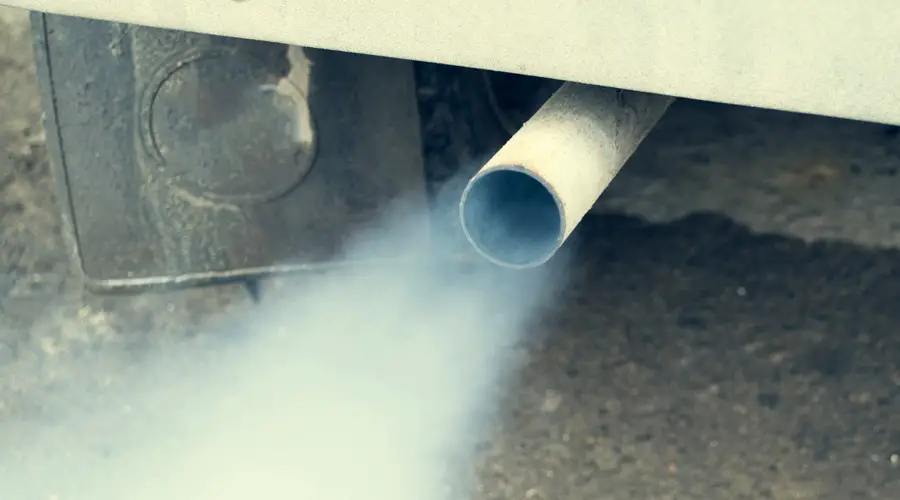
A blown head gasket is not something you can ignore. If you do, it can be very bad news for your engine. If you suspect a problem, it’s important to get it taken care of as soon as possible which is why it’s important to know the signs of a blown head gasket.
What Is a Head Gasket?
The head gasket is the seal between the engine block and cylinder head. It prevents leakage between these two crucial parts of the engine, maintaining the right amount of pressure and the separation of oil and water passing through.
Head gaskets are typically machine cast and extremely durable. They’re exposed to a harsh environment as well as fuel, exhaust, water, and engine oil. But they aren’t indestructible. A blown head gasket happens when a hole or perforation results from the compression of the cylinder head. There are a few things that can cause a blown head gasket and multiple things to look out for if you suspect a problem.
Signs of a Blown Head Gasket
Here are five of the biggest signs that indicate that you have a head gasket problem.
[su_panel background=”#ffff” shadow=”2px 2px 2px #eeeeee” radius=”4″]1. Loss of Power
Depending on how the blown head gasket fails, air or fuel can escape the system. This affects the compression in the cylinder, leading to less engine power as well as a rough ride and increased exhaust.
[/su_panel] [su_panel background=”#ffff” shadow=”2px 2px 2px #eeeeee” radius=”4″]2. Overheating
Overheating is never good but it can be a little hard to interpret when it relates to a head gasket failure. Why? Because the most common cause of a blown head gasket is an overheated engine that results from a clogged radiator, faulty fan, or coolant leak.
[/su_panel] [su_panel background=”#ffff” shadow=”2px 2px 2px #eeeeee” radius=”4″]That said, a blown gasket can also be the cause of an overheated engine block. If a head gasket blows, hot gases can get into the cooling system or the coolant can leak. Both of these problems can lead to an overheated engine. Whether it’s the symptom or the cause, a blown head gasket is always a possibility when the engine overheats so it should be checked out.
3. White Smoke

Source: canva.com
This is the most common sign of a blown head gasket. Billowing, white clouds of smoke come out of the exhaust, caused by antifreeze leaking into the cylinders and being turned into steam. Because this smoke contains antifreeze, it has a sweet odor. Though not as common, it’s also possible for oil to get into the cylinders which causes blue exhaust.
[/su_panel] [su_panel background=”#ffff” shadow=”2px 2px 2px #eeeeee” radius=”4″]4. Oil Contamination
Oil contamination occurs when the coolant gets into the engine oil. It’s sometimes called a “milkshake” because the result is milky-looking sludge in on the oil cap or dipstick. While this is not definitive proof of a blown head gasket, it’s a sign that something is wrong and a blown head gasket is certainly one possibility.
If the oil is contaminated, it’s not safe to drive your car. Doing so can result in significant damage. Repairs can be quite extensive because the oil needs to be flushed and the engine often has to be completely disassembled to check on the status of the bearings.
[/su_panel] [su_panel background=”#ffff” shadow=”2px 2px 2px #eeeeee” radius=”4″]5. External Leaks
When a head gasket blows, oil or coolant can leak out of the engine. This is probably the mildest sign of a blown head gasket and causes the least amount of damage but it has to be addressed early. If too much coolant leaks, the engine will overheat which leads to a lot of other problems. If the oil leaks, there’s a chance it can come in contact with hot exhaust which could potentially cause a fire.
[/su_panel]How to Prevent a Blown Head Gasket
There are some steps you can take to prevent a blown head gasket. While they’re not full proof, anything you can do to potentially save thousands of dollars in repairs is worth a try.
The most common cause of a blown head gasket is an overheated engine, especially if you continue to drive after your car has overheated. So, the best way to try to prevent a blown head gasket is to make sure your cooling system is performing as it should. Check coolant levels regularly and make sure there aren’t any leaks in the system. Pay attention to the radiator and thermostat and ensure that the fan is working as it should.

Source: canva.com
If your car does overheat, pull over and let it cool down for at least an hour before attempting to drive it again. Refill the coolant or radiator first if need be. If you’re unsure, call your mechanic and see if they recommend a tow.
When signs of a blown head gasket appear, the best thing to do is have it checked out or try to evaluate the situation yourself. The easiest way to do this is to remove the radiator cap, start the car, and see if bubbles appear in the coolant. If they do, it’s a sign that there’s a leak in the seal. That said, this is not a fool-proof test so it’s always a good idea to call your mechanic. They check to see if combustion gasses are present in the cooling system to verify a problem.
Related: Subaru’s infamous head gasket problems
Repair
How extensive the repairs are for a blown head gasket depends on how extensive the damage is and how early you caught the problem. Sometimes, the entire thing will need to be replaced which can end up costing a pretty penny. Other times, a head gasket sealant can be used to seal small cracks and gaps. These sealants are available at most automotive stores and, while they’re not a permanent fix, they can buy you some time and prevent more extensive damage.
Catching Problems Early
Knowing the signs of a blown head gasket is important because it can end up saving you a lot of money and aggravation. The earlier you catch a problem like this, the better. If you notice your engine seems to have less power, overheats, produces white cloudy sweet-smelling exhaust, has contaminated oil, or if fluids are leaking under your vehicle, get your car looked at to prevent any further damage.
Wondering if you can drive with a blown head gasket?
Source of Featured Image: canva.com